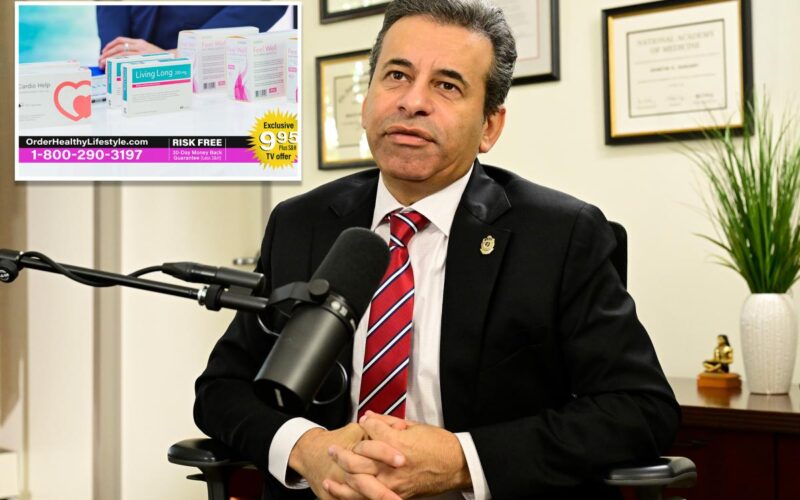President Trump’s Food and Drug Administration is cracking down on the “endless” barrage of pharmaceutical advertisements Americans are hit with on a daily basis, FDA Commissioner Marty Makary said on the latest episode of “Pod Force One.”
“It’s getting out of control. It’s distorting the doctor-patient relationship, these endless pharmaceutical ads,” Makary told “Pod Force One” host Miranda Devine.
The FDA commissioner explained that ensuring Americans are not misled by drugmakers is “something doctors are united on,” and his agency is closely watching how Big Pharma markets directly to consumers.
“The FDA had been lax in enforcing the regulations on pharma ads, on them being misleading,” Makary said. “We have regulations that they have to provide a fair balance of information.
“They can’t create a misleading impression.”
Makary argued that the “singing and dancing,” along with other tropes that are a hallmark of ubiquitous pharmaceutical advertisements, confuse consumers.
“[Y]ou watch these things nonstop, and you’re like, ‘Okay, I’ll take it. I don’t know what it is. I think I heard sudden death and then a complication,’” he said.
In the social media age, drug companies have become increasingly reliant on digital and social media ads – including by using paid influencers – which overwhelmingly flout federal regulations, according to the FDA.
In September, the agency noted that the Journal of Pharmaceutical Health Services Research found 100% of pharmaceutical social media posts highlight drug benefits, while only 33% mention potential harms.
Additionally, 88% of ads for top-selling drugs are posted by individuals and organizations that fail to adhere to the FDA’s fair balance guidelines, which require the commercials to disclose potentially negative side effects.
Makary charged that the Biden administration did little to take on drugmakers.
“The FDA used to send out over 100 enforcement letters a year. In the Biden administration, it went down to one letter in 2023 … and zero last year,” Makary said.
Under Makary, the FDA has dramatically ramped up enforcement.
“A few weeks ago, I sent out 1,500 warning letters and over 100 cease and desist letters to those companies, and we’re going to keep going,” he told Devine.
“They spend 20% to 25% of their budgets as a pharma company on marketing,” Makary said of drugmakers. “They should spend that on lowering drug prices for everyday Americans.”
Makary also wants to phase out animal testing, which is how certain drug companies determine if medicines would be harmful to people.
The FDA commissioner believes there are “better techniques” to determine drug safety and effectiveness than subjecting beagles to potentially deadly experiments.
“It turns out computational modeling is better in testing drugs than animal testing,” Makary explained, adding that organ cell line testing, a process where drugs are tested on human tissue cells in the lab, is also promising.
“[S]ome drugs get held up in animal testing where they have no toxicity in humans,” he continued. “So, we may be missing out on some cures.”
Makary argued that for a lot of areas of medicine, we don’t need animal testing, but he said the FDA wants to phase it out “the right way” and “safely.”








